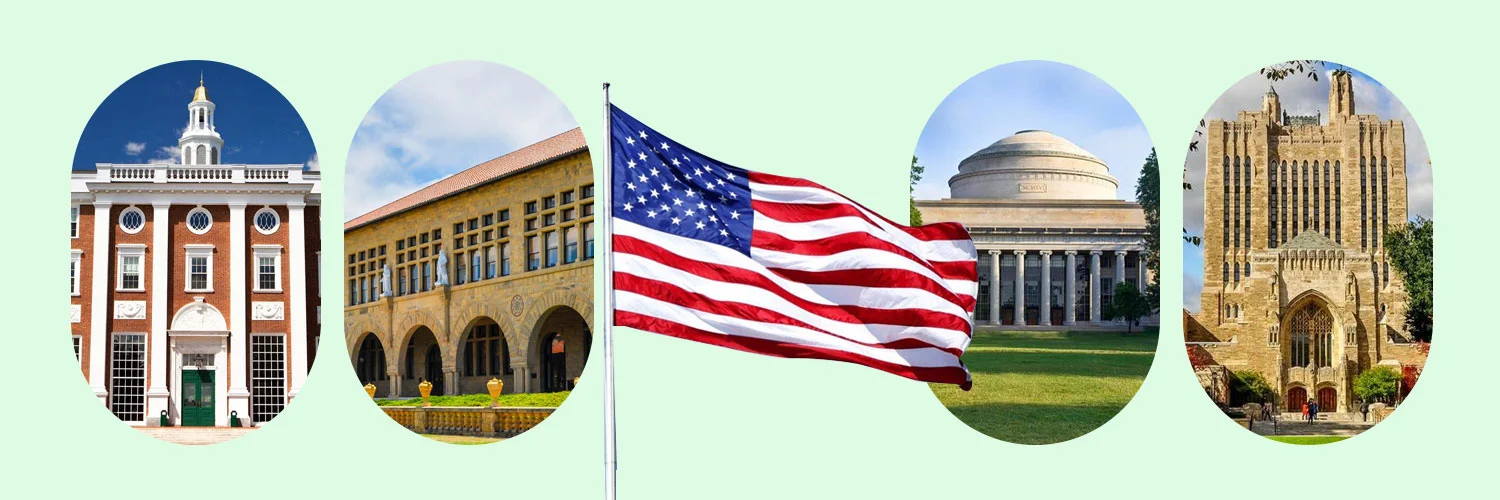
Top MBA Colleges Globally for Indian Students
Revealing the Top MBA Colleges in The World for Indians
share
![]()
Understanding the Importance of an MBA Education for Indians
Let’s dive into why an MBA from a Top MBA university in world is a real deal for Indian students and why it’s not just another alphabet soup to put on your resume.
An MBA isn’t just a qualification; it’s a transformational journey. It’s like levelling up in a video game, but instead of virtual coins, you’re earning real-world skills and knowledge that can supercharge your career in India’s bustling business landscape. So, buckle up because we’re about to unpack why this degree packs a punch like no other.
What’s this MBA Buzz All About?
So, first things first, what’s an MBA? Well, it stands for Master of Business Administration. Think of it as a golden ticket to the world of business wizardry. The core objective? To groom you into a business-savvy champ who can tackle the corporate jungle with finesse.
Why Should You Care?
Why should you be all ears about this MBA from the Top MBA university in world thing? For starters, it’s a career booster on steroids. You’re talking about an average salary hike of 50-75% after getting that MBA degree for Indian professionals working in or outside India. Yep, that’s the real deal for your bank account.
Masters in Business Administration (MBA) is one of the most sought-after postgraduate study programs, its accreditation giving rise to several top B-schools in the world. Some of the aforementioned core objectives include the following -
- Solving managerial issues
- Integration and practice of management theories
- Implementation of leadership skills in the face of diversity
- Identification and Analysis of Business Ethics
- Demonstration of effective forms of communication - written and verbal
Besides being job-ready, an MBA from the Top MBA college in the world also helps in climbing up the corporate ladder (stagnancy is not part of the vocabulary), widening social networks, and noticeable branding that comes from universities with high reputations increases employability and gives you a higher chance of earning more money by boosting your career credibility. It might also be the key to landing your dream job as an entrepreneur!
To gain admission to a Top MBA university in world, Indian applicants must meet several common prerequisites. Remember that specific requirements can vary between universities, so it’s essential to research the specific program you’re interested in. However, here are some general prerequisites for Indian candidates:
- Bachelor’s Degree: You must have completed a bachelor’s degree from a recognised university or institution. Most MBA programs prefer candidates with a four-year undergraduate degree, but some may accept three-year degrees.
- Work Experience: Many top MBA programs require applicants to have relevant work experience. The typical range is around 2 to 5 years of professional experience after completing your bachelor’s degree.
- GMAT/GRE Scores: You must take the Graduate Management Admission Test (GMAT) or the Graduate Record Examination (GRE). A competitive score on one of these standardised tests is crucial for admission.
- TOEFL/IELTS Scores: If English is not your native language or if your undergraduate education was not conducted in English, you will likely need to provide proof of English language proficiency through the Test of English as a Foreign Language (TOEFL) or the International English Language Testing System (IELTS).
- Letters of Recommendation: Most MBA programs require two to three letters of recommendation from individuals who can speak to your professional and academic qualifications.
- Statement of Purpose/Essays: You must write essays or a statement of purpose (SOP) as part of your application. These essays are an opportunity to showcase your goals, experiences, and why you want to pursue an MBA at that particular school.
- Resume/CV: Provide a detailed resume or curriculum vitae (CV) highlighting your work experience, achievements, and relevant skills.
- Interview: Some MBA programs conduct interviews during the admissions process. Prepare for interviews to discuss your background, experiences, and aspirations.
- Transcripts and Academic Records: You must submit academic transcripts and certificates from your undergraduate and postgraduate studies.
- Application Fee: Be prepared to pay the application fee for each university you apply to. Fees can vary widely between institutions.
Remember that the admission criteria and competition can be highly competitive at the Top MBA colleges in the world . Therefore, preparing a strong application that demonstrates your qualifications and leadership potential and fits with the program’s culture and values is essential. Additionally, each university may have specific requirements and preferences, so carefully review the admission guidelines for the programs you are interested in.
Dedication and tenacity are traits of an aspiring MBA student, and these were no less present in either Ritesh Agarwal, Founder and CEO of OYO, or in Jamie Dimon, CEO of JPMorgan Chase.
![]()
In a Nutshell
Pursuing an MBA from a top global university holds transformative value for Indian professionals, promising a substantial 50-75% salary increase. This qualification is portrayed as more than a degree, presenting a journey that hones managerial, leadership, and ethical skills. The article underlines the program’s capacity to elevate careers, expand networks, and enhance employability, especially in entrepreneurship. Prerequisites for admission include a bachelor’s degree, work experience, and standardized test scores, reflecting the competitive nature of admissions. Dedication and tenacity are deemed essential, drawing inspiration from successful business leaders like Ritesh Agarwal and Jamie Dimon.
All ready to jet off to your MBA journey but confused about the Visa process?
Learn How! Learn How!Scan QR Code To Download The App

Criteria for Evaluating Top MBA College in the world.
Choosing the right program specialisation in your MBA is like picking the perfect tool for a job. It’s all about aligning your career goals and aspirations with the specific skills and knowledge you need to thrive in your chosen field.. When selecting an MBA program, here are a few things you should consider:
- Duration/Length of the program: As much as this determines the pace of your study, it also determines your entry (or re-entry) into the job market/workforce. Traditionally, most colleges offer a two-year format, although leniency is offered based on opportunities provided.
- Specialisations and strength: Catering to programs that focus on a particular specialisation, colleges also offer flexible programs that provide opportunities for internships and entrepreneurial ventures, which may provide insight through experiential or elective courses.
- Eligibility: Age and work experience are invaluable information that can help opt for a particular program. Look out for any such factors before applying.
- Location: The influence of geography is evident in environments offered for development - community-based or recruitment ties. Does moving away from home benefit you more?
- Network: The strength of the alumni network opens more career opportunities, as do endorsements and affiliations. This will help you in the long run!
- Prestige/Recognition: Names might stand no chance against skills in a fair competition, yet it is key to consider reputation for future placements - world-class programs might offer exceptional access to universities. In contrast, globally oriented programs are a launching pad for working overseas. International accreditations such as AACSB, AMBA, EQUIS, ACBSP and IACBE are noteworthy accreditations to keep an eye out for. Though each carries as much prestige, they vary in their philosophies - AMBA focuses on individual programmes over institutions, centring itself around impact, employability, and learning outcomes.
- Culture/Values: It is essential to consider whether the chosen program is a good fit for you, and the best way to gauge this is by attending college fairs and campus visits. The environment should be a nurturing field for your growing interest, helping you align your values with the institution’s.
- Cost and ROI: MBA programs cost a hefty sum, and looking into the considerable time it would take to gain back ROI (Return of Interest) is wise. Forbes and Economist rankings are an excellent place to start this research.
- Career opportunities: Navigate future career options using the information provided on institution websites - scoping out information from career services, recruitment drives, and interactions with alums and current employees will give you an accurate picture of what you can expect.
Methodology for Ranking Top MBA Colleges in the World
How do you know if the program you’ve opted for is worth it? What guarantee do you have? This is where university rankings help! To highlight the Top B schools in world, data is collected employing three surveys - QS Global Employer Survey, QS Global Academic Survey, and surveys completed by top business schools. It is essential to refer to transparent and credible sources.
The rankings breakdown includes 5 critical indicators from a criteria of 13 parameters. They are Employability (40%), Entrepreneurship and Alumni Outcomes (15%), Return on Investment (20%), Thought Leadership (15%), and Class and Faculty Diversity (10%).
Save on forex fee with Niyo to ease your tension from spending abroad.
Know How! Know How!Scan QR Code To Download The App

Top MBA Colleges in the World (Ranking List)
A comparison among the top colleges might give you more room to make informed decisions!
Given below are the rankings of the top MBA colleges in the world:
| Top MBA colleges | Profile | Strengths, unique features | Notable achievements | Acceptance rates + GMAT/GRE scores | post-MBA employment rate |
| fff;">Stanford Graduate School of Business | <td style=“background-color:|||||
Beyond the Rankings: Exploring Other Outstanding MBA Colleges
When it comes to pursuing an MBA, it’s easy to get caught up in the whirlwind of rankings and prestige. However, don’t let those shiny numbers blind you to some hidden gems in the world of business education. Let’s dive into some lesser-known MBA colleges that might just be the perfect fit for you.
- University of Houston: Nestled in the heart of Texas, the University of Houston’s MBA program might surprise you with its diverse student body and strong connections to the booming industries in Houston. With over 6,000 students enrolled, you’ll find a thriving community here.
- American University (Washington, D.C.): If you’ve set your sights on the nation’s capital, American University’s MBA program could be your ticket. With a stellar faculty-to-student ratio of 1:11, you can expect personalised attention in your studies.
- Drexel University (Philadelphia): Philly cheesesteaks and an MBA? Why not! Drexel University offers a Co-op MBA program that integrates real-world work experience, boasting a 98% job placement rate for its graduates.
- Babson College (Wellesley): If entrepreneurship is your passion, Babson College is your playground. It consistently ranks among the top schools for entrepreneurship education, and its Global Entrepreneurship Monitor Report is a testament to its commitment.
- Birmingham University: Across the pond in the UK, Birmingham University offers a unique international perspective. Their MBA program welcomes students from over 120 countries, providing a global experience.
- Faculty of Management Studies (FMS), New Delhi: Closer to home, FMS in New Delhi, India, has been a breeding ground for business leaders since 1954. With a highly competitive acceptance rate of around 1.2%, it’s a testament to its prestige.
- S P Jain Institute of Management and Research (SPJIMR), Mumbai: Another Indian gem, SPJIMR in Mumbai, has consistently ranked among the top B-schools in India. Its focus on experiential learning and innovative pedagogy sets it apart.
- Xavier School of Management (X.L.R.I), Jamshedpur: Nestled in the steel city of India, XLRI is renowned for its Human Resources and Business Management programs. Its rigorous curriculum and impressive alumni network make it a top choice.
So, remember, while rankings are important, they don’t tell the whole story. These underrated MBA colleges offer unique experiences and opportunities that might align better with your career goals. It’s all about finding the right fit for you.
Fund Your MBA Journey: Financing Your MBA Education for Indians
While it is a known fact that a full-time (two-year) enrollment in an MBA program can come with staggering costs, it is also essential to understand the tools you can equip yourself with to finance your education better. In India, MBA fees range from 20,000 INR up to 40,00,000 INR, whereas pursuing MBA abroad would cost 73-80,000 USD, depending on the University (exclusive of any other fee). Although a few universities offer scholarships and grants on their websites, here are a few notable fellowships/grants you can consider:
- The Zonis Fellow Scholarship - Awarded to international students in Economics who demonstrate stellar achievement in leadership, academics, and community; includes funding options of student loans and merit-based aid.
- INSEAD Scholarship (Deepak and Sunita Gupta Endowed Scholarship) - Offers financial aid based on need, ranging from 10,000 to 25,000 EUR.
- Chicago Booth Scholarships - With various scholarships awarded based on differing eligibility, these scholarships are highly merit-based.
- Aditya Birla Group Scholarship - Offers to cover tuition fees to the top 20 students of various IIMs and X.L.R.I.
- OP Jindal Engineering and Management Scholarship (OPJEMS) - Provides financial aid to 20 students from various b-schools based on entrance exams for First Years, and academic performance for Second, Third and Fourth Years.
- IDFC First Bank Scholarship - 350 scholarships awarded for a full-time (two-year) enrollment are need-based and provided to students from families with less than 6 lakhs per annum.
Tip: If you’re on the hunt for a detailed guide on how to fund your master’s education abroad, look no further—this blog has got you covered. It’s your one-stop-shop for all the info you need on different ways to finance your overseas academic adventure!
Success Strategies for MBA Applications
The skills you possess in marketing yourself will majorly determine your success in procuring an MBA admission to one of the top MBA colleges in the world. With the expected slew of information and documents you are expected to provide - essays, resume/CV, letters of recommendation, GMAT/GRE scores, details of academic and professional experience - it is important to consider how you can convey your ability to maximise your strengths and minimise your weaknesses. Reflecting on your skills, aptitude, and story, it is recommended you stay consistent in your presentation of information - do not only highlight your responsibilities and accomplishments. Your learnings and lessons are just as important. Lastly if you are scared of the language barriers holding you back you can always use apps like Duolingo or read through guides like ours on overcoming language barriers as indians.
As for recommendation letters, opt for candidates who can provide anecdotal information to back your aptitude and skills and address important aspects, including your intellectual capability, personal attributes that help in the work field, potential as a leader, and career plans. Here is where your acute networking skills come into play!
Conclusion:
Though MBA colleges are many, it is important to consider various factors based on personal preferences before you choose a program that perfectly caters to what you aim to achieve. Your goals and values must align with the institute’s for you to gain a holistic experience. Although research on colleges provides comparison based on rankings, you should look beyond that - quality of education is paramount. Skills that lead you to an MBA degree are as important as those acquired through an MBA degree! Hard work, perseverance and tenacity will take you far in your success in the business world.
Key Takeaways
Embarking on an MBA journey is a transformative experience that can significantly boost your career. The world’s top MBA colleges, including Stanford, Harvard, HEC Paris, and others, have produced CEOs and successful professionals. Pursuing an MBA not only enhances your skills but also opens doors to lucrative opportunities.
Frequently Asked Questions
- How can an MBA degree enhance my career opportunities and earning potential?
An MBA degree from any Top MBA university in world allows you to enter into the world of business by enabling access to learning about all aspects that involve business, with a focus not just on one specialisation. An MBA degree carries a good reputation – it provides opportunities to seek employment in top companies and industries that seek such skills. They come with the best packages, as MBA professionals are considered assets in the work field.
- What criteria should I consider when evaluating MBA colleges for my studies?
Besides rankings of the Top MBA colleges in the world, you should also consider the length/duration of the program, eligibility, geographical location, specialisations offered, prestige, network, culture and values, cost and ROI, and career opportunities.
- How do international accreditations like AACSB, AMBA, and EQUIS impact the quality of MBA programs?
A good way to check the quality of education in a business school is to check accreditation, besides rankings of the Top MBA colleges in the world . Accreditation organisations take on the responsibility to evaluate quality standards of teaching, faculty, services, and students, among other metrics. The most prestigious international accreditations, including AACSB, AMBA, and EQUIS, enable schools to stand out, thus garnering this reputation to easily provide career opportunities and employability.
- How can I decide which MBA college best fits my career goals and aspirations?
Once you’ve identified your goals and aspirations, it is important to check whether the program you’ve opted for aligns with them. Every top MBA university in world offers an extensive guide to what one can expect from their program, and it is easy to navigate based on comparison. Although this is mostly done based on rankings, there are many other factors you need to consider before applying.
- Are there other reputable MBA colleges worth considering, even if they are not at the top of the rankings?
It is certain that there are other reputable colleges worth considering, albeit without top rankings. University of Houston, Drexel University and American University (Washington, D.C.) are a few underrated options, while in India, FMS (Delhi), SPJIMR and X.L.R.I are notable.







